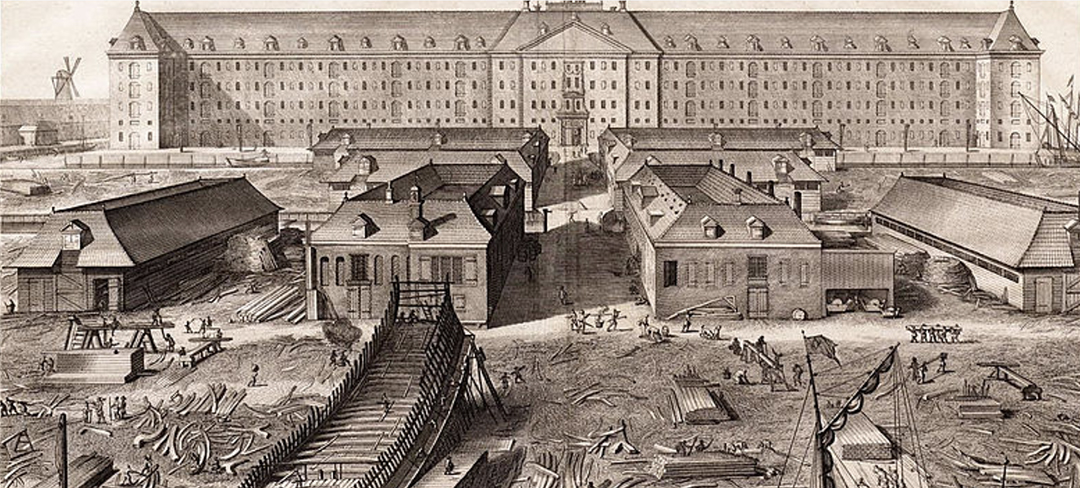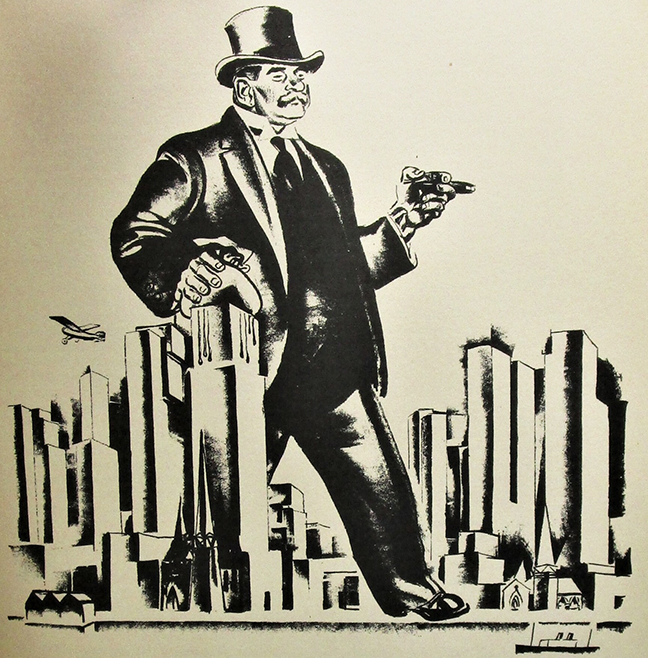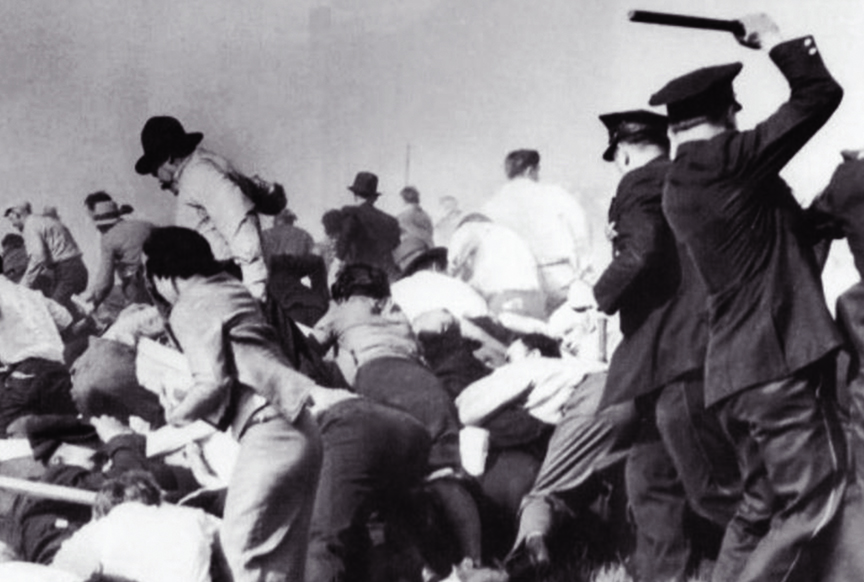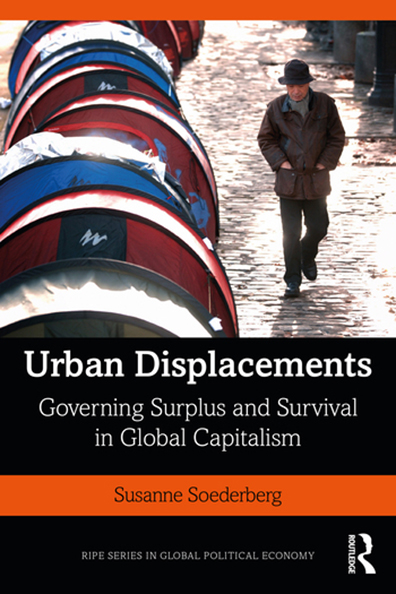Class and Gender
Marx’s Inquiry into the Birth of Capitalism: Why Does It Matter?
Online: Zoom link will be provided to registered participantsAs Marx argues, “original accumulation” of capital, the transformation of pre-capitalist to capitalist social relations, is not explained by the fairy tale of wise and thrifty household producers getting wealthy by their own labor. John Milios’ research into the “pre-capitalist money owner”, the role of commodity production (as opposed to production for direct consumption) based on slave labor in the ancient world, and the development of ”contractual money begetting” production in Europe in the middle ages, helps us understand what is and is not capitalism. He critically analyzes both Marxist and non-Marxist literature. He uses the rise and fall of the Venetian mercantile republic as a case study. He concludes that “No version of capitalism is the realm of ... freedom or justice. Capitalism is a social system in which ... coercion guaranteeing economic exploitation of the ruled by the rulers is incorporated into the economic relation itself.”
Capital, V1, Part 2: The Transformation of Money Into Capital
Online: Zoom link will be provided to registered participantsWe will do a close reading of the chapters in Part Two of Volume I of Capital on “The Transformation of Money Into Capital”. In these chapters Marx introduces the fundamental concepts of capital,labor power, surplus value and the valorization process.
Capital, V1, Part 2: The Transformation of Money Into Capital
Online: Zoom link will be provided to registered participantsWe will do a close reading of the chapters in Part Two of Volume I of Capital on “The Transformation of Money Into Capital”. In these chapters Marx introduces the fundamental concepts of capital,labor power, surplus value and the valorization process.
Capital, V1, Part 2: The Transformation of Money Into Capital
Online: Zoom link will be provided to registered participantsWe will do a close reading of the chapters in Part Two of Volume I of Capital on “The Transformation of Money Into Capital”. In these chapters Marx introduces the fundamental concepts of capital,labor power, surplus value and the valorization process.
Capital, V1, Part 2: The Transformation of Money Into Capital
Online: Zoom link will be provided to registered participantsWe will do a close reading of the chapters in Part Two of Volume I of Capital on “The Transformation of Money Into Capital”. In these chapters Marx introduces the fundamental concepts of capital,labor power, surplus value and the valorization process.
Capital, V1, Part 2: The Transformation of Money Into Capital
Online: Zoom link will be provided to registered participantsWe will do a close reading of the chapters in Part Two of Volume I of Capital on “The Transformation of Money Into Capital”. In these chapters Marx introduces the fundamental concepts of capital,labor power, surplus value and the valorization process.
Capital, V1, Part 2: The Transformation of Money Into Capital
Online: Zoom link will be provided to registered participantsWe will do a close reading of the chapters in Part Two of Volume I of Capital on “The Transformation of Money Into Capital”. In these chapters Marx introduces the fundamental concepts of capital,labor power, surplus value and the valorization process.
Fifth Summer of Noir: Last session this week (Derek Raymond and Denise Mina)
Online: Zoom link will be provided to registered participantsFor the last four summers, the MEP Literature Studies Group has delved into a wealth of noir fiction. This year our six selections will take us deep into the underbelly of capitalism – good for reading at the beach, on the subway, a train, boat or plane, or in your favorite reading chair safely at home. Join in for the last two books.
Fifth Summer of Noir: Last session this week (Derek Raymond and Denise Mina)
Online: Zoom link will be provided to registered participantsFor the last four summers, the MEP Literature Studies Group has delved into a wealth of noir fiction. This year our six selections will take us deep into the underbelly of capitalism – good for reading at the beach, on the subway, a train, boat or plane, or in your favorite reading chair safely at home. Join in for the last two books.
Fifth Summer of Noir: Last session this week (Derek Raymond and Denise Mina)
Online: Zoom link will be provided to registered participantsFor the last four summers, the MEP Literature Studies Group has delved into a wealth of noir fiction. This year our six selections will take us deep into the underbelly of capitalism – good for reading at the beach, on the subway, a train, boat or plane, or in your favorite reading chair safely at home. Join in for the last two books.
Fifth Summer of Noir: Last session this week (Derek Raymond and Denise Mina)
Online: Zoom link will be provided to registered participantsFor the last four summers, the MEP Literature Studies Group has delved into a wealth of noir fiction. This year our six selections will take us deep into the underbelly of capitalism – good for reading at the beach, on the subway, a train, boat or plane, or in your favorite reading chair safely at home. Join in for the last two books.
Political Economy of Labor Repression in the United States
Online: Zoom link will be provided to registered participantsAndrew Kolin presents a detailed explanation of the essential elements that characterize capital’s relations to the working class and how capital relies on various forms of repressing reform and revolutionary movements by workers. The repression is directly linked to the class struggle between capital and labor. The starting point examines labor repression after the American Revolution. Andrew’s book then follows the role of the state along with the explosive growth of American capitalism to analyze the long history of capital and labor conflict with details of the US state being aligned with the interests of capital throughout American history.
Urban Displacements and Contemporary Capitalism
Online: Zoom link will be provided to registered participantsSusanne Soederberg argues that historical and geographical configurations of monetized governance, including landlords, employers and inter-scalar state practices, have served to reproduce urban displacements and obfuscate their gendered, class and racialized underpinnings. The outcome is the everyday facilitation and normalization of urban poverty and social marginalization on one side, and capital accumulation on the other.
Studies in the Works of Antonio Gramsci with Piruz Alemi
Online: Zoom link will be provided to registered participantsThis 10-week session has four sessions remaining which feature a close reading of Gramsci’s Prison Notebooks. We will look to connect cultures and their human rights struggles. We will also explore those who influenced Gramsci, particularly Marx, but also Machiavelli and Croce. This seminar is accessible to people at all levels of familiarity with Gramsci’s work, including those just beginning their studies of Gramsci. Join at any time.
The Essential Political Writings of Hubert Harrison
Online: Zoom link will be provided to registered participantsJeffrey B Perry describes Harrison “as the most class conscious of the race radicals and the most race conscious of the class radicals in those years” adding that he is “a key link in the two great trends of the Civil Rights/Black Liberation struggle—the labor and civil rights trend associated associated with A. Philip Randolph and Martin Luther King, Jr. and the race and nationalist trend associated with Marcus Garvey and Malcolm X.”






